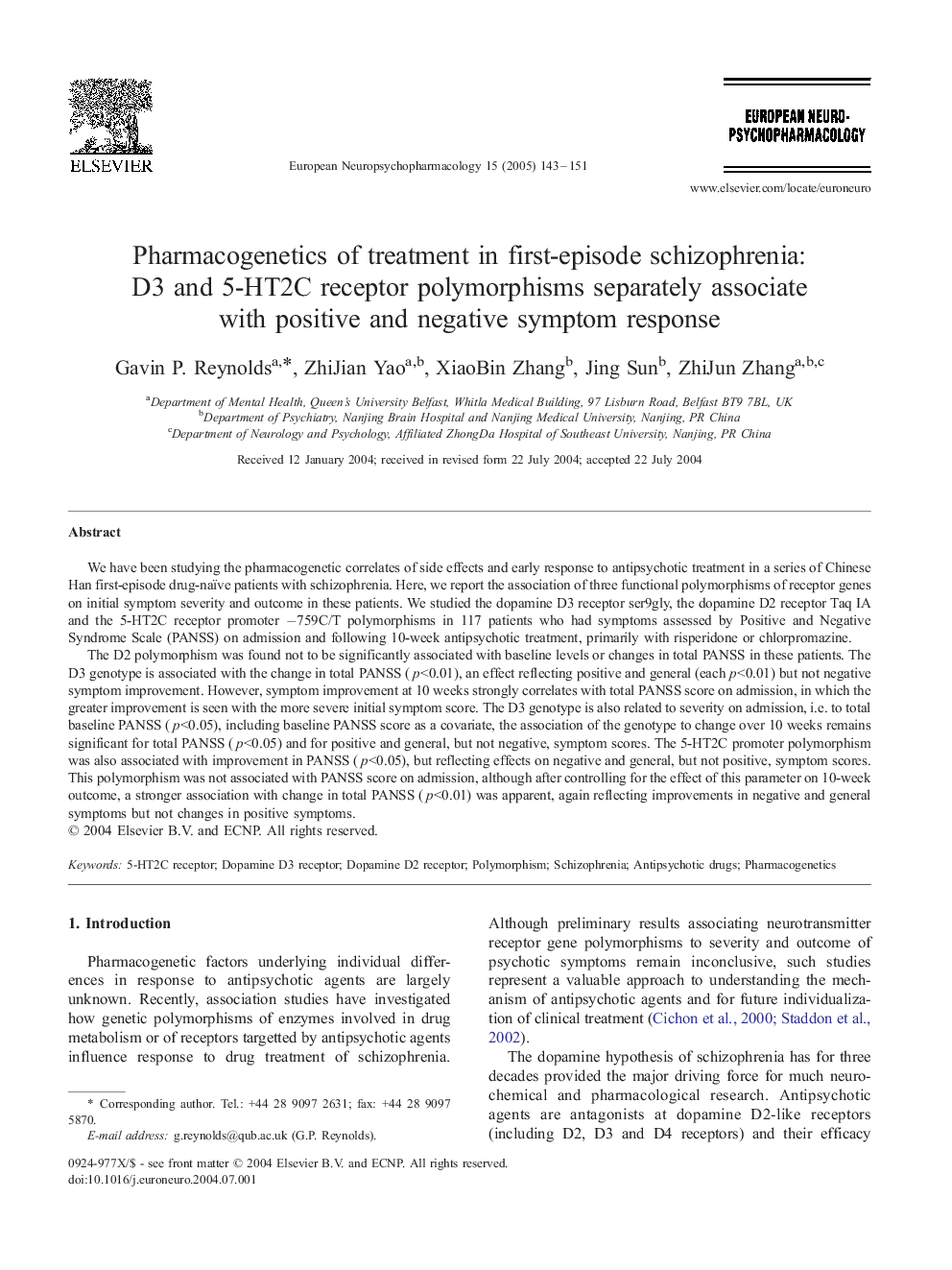| Article ID | Journal | Published Year | Pages | File Type |
|---|---|---|---|---|
| 10298848 | European Neuropsychopharmacology | 2005 | 9 Pages |
Abstract
The D2 polymorphism was found not to be significantly associated with baseline levels or changes in total PANSS in these patients. The D3 genotype is associated with the change in total PANSS (p<0.01), an effect reflecting positive and general (each p<0.01) but not negative symptom improvement. However, symptom improvement at 10 weeks strongly correlates with total PANSS score on admission, in which the greater improvement is seen with the more severe initial symptom score. The D3 genotype is also related to severity on admission, i.e. to total baseline PANSS (p<0.05), including baseline PANSS score as a covariate, the association of the genotype to change over 10 weeks remains significant for total PANSS (p<0.05) and for positive and general, but not negative, symptom scores. The 5-HT2C promoter polymorphism was also associated with improvement in PANSS (p<0.05), but reflecting effects on negative and general, but not positive, symptom scores. This polymorphism was not associated with PANSS score on admission, although after controlling for the effect of this parameter on 10-week outcome, a stronger association with change in total PANSS (p<0.01) was apparent, again reflecting improvements in negative and general symptoms but not changes in positive symptoms.
Keywords
Related Topics
Life Sciences
Neuroscience
Biological Psychiatry
Authors
Gavin P. Reynolds, ZhiJian Yao, XiaoBin Zhang, Jing Sun, ZhiJun Zhang,
